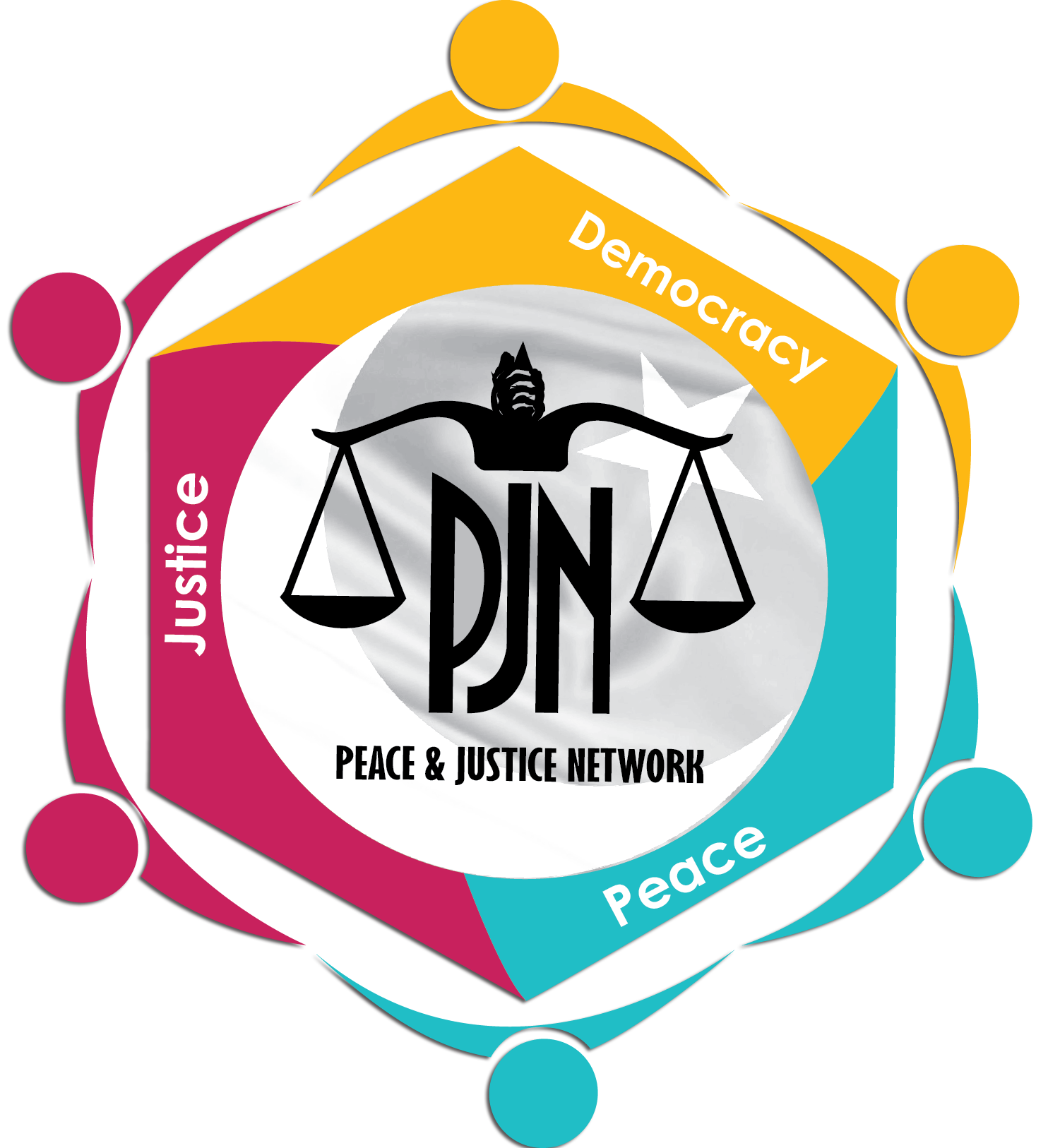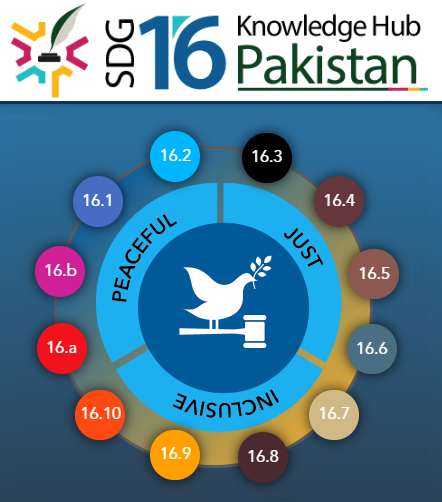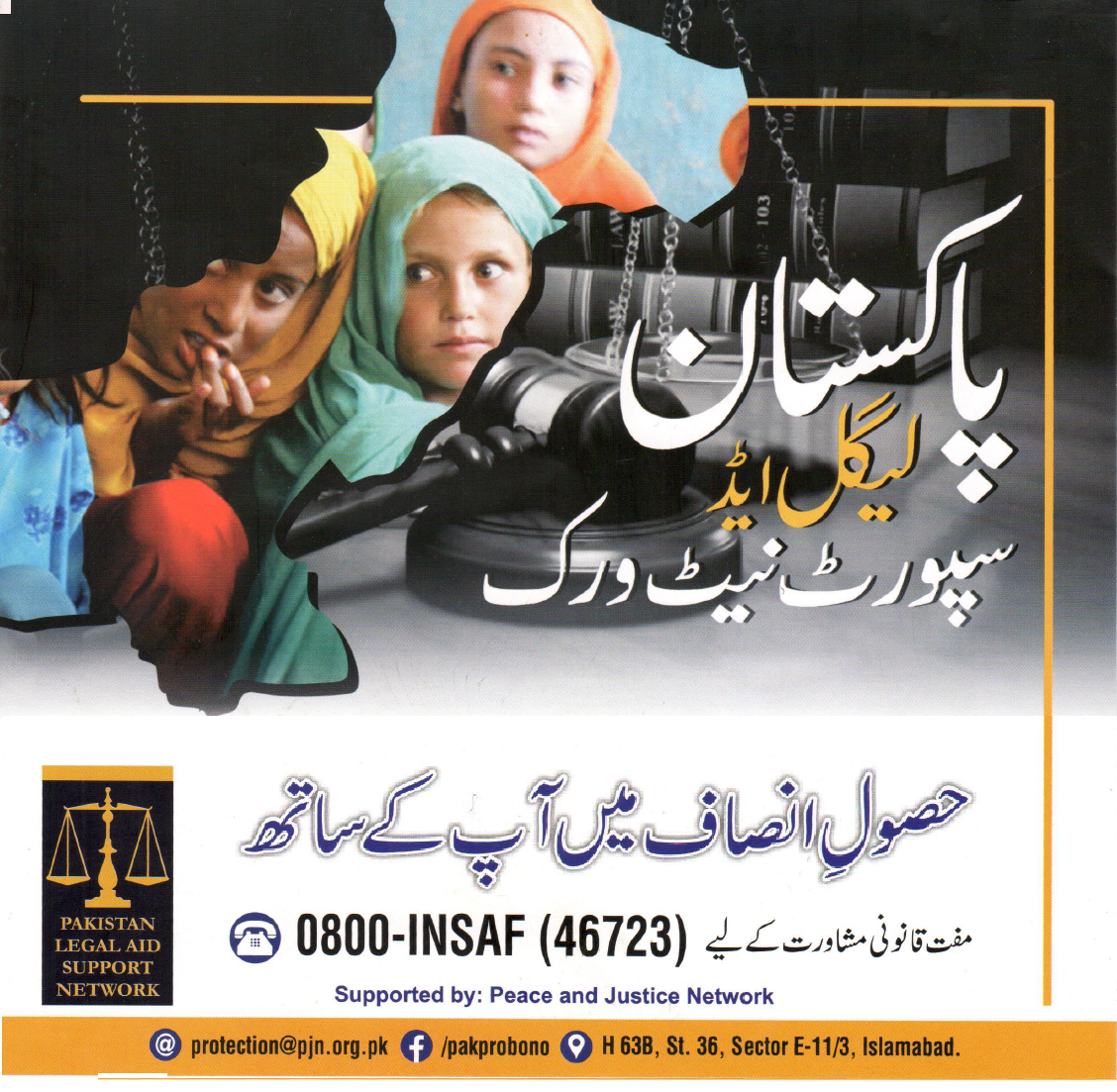

International Day for Judicial Well-being: A Global Call for Action (4 Mar, 2025)
Pakistan Ranks 129 out of 142 in the World Justice Project Rule of Law Index (26 Oct, 2024)
2024 Trafficking in Persons Report: Pakistan (24 June, 2024)
Pakistan ranks second-last in WEF Global Gender Gap Report 2024 (7 Mar, 2025)
The Need for Access to Justice in Pakistan: Lessons from the Field
.jpg)
Mon, September 08, 2025
Access to justice is not only a constitutional promise in Pakistan but also a cornerstone of democratic governance and sustainable peace. Yet for millions of Pakistanis—especially women, children, minorities, persons with disabilities, and marginalized communities—justice remains distant, complex, and often unattainable. The Peace & Justice Network (PJN) Pakistan’s field work across rural and urban communities highlights both the urgency of this challenge and the pathways forward.
Justice as a Daily Struggle
In Pakistan, systemic barriers—ranging from lack of awareness about rights and procedures, to financial costs, gender norms, and weak institutional responses—make justice a privilege rather than a right. PJN’s through its network of civil society organizations across Pakistan work in districts across Khyber Pakhtunkhwa, Punjab, Sindh, and Balochistan reveals that most people engage with the justice system only in crisis: after experiencing violence, land disputes, inheritance conflicts, or wrongful detention. By then, the barriers feel insurmountable.
For women and girls, the challenges multiply. Survivors of gender-based violence often face stigma, threats from family, and long, retraumatizing processes in police stations and courts. Persons with disabilities are frequently excluded from legal protections due to inaccessibility and institutional neglect. Minority groups encounter systemic discrimination and lack representation in dispute resolution structures.
Lessons from the Field
PJN’s grassroots initiatives offer important insights into how access to justice can be improved:
- Community Legal Empowerment Works: PJN’s legal empowerment programs demonstrate that when communities are informed of their rights in local languages and linked with legal aid providers, they are better able to navigate justice systems. Simple tools—like legal literacy booklets, awareness sessions, and community paralegals—have helped people file cases, challenge arbitrary practices, and demand accountability.
- Alternative and Restorative Mechanisms Can Complement Courts: Field evidence shows that informal justice structures—such as Dispute Resolution Councils (DRCs)—when sensitized, inclusive, and monitored, can reduce the burden on courts and provide timely relief. PJN’s work with DRCs in Khyber Pakhtunkhwa illustrates how structured mediation can resolve local disputes more fairly when gender sensitivity and minority inclusion are ensured.
- Technology Can Break Barriers: From the COVID-19 period to today, PJN has seen how technology-based tools—legal helplines, AI-driven chatbots in local languages, and online legal aid directories—bridge the information gap for remote and marginalized communities. These innovations reduce dependence on exploitative middlemen and empower citizens to directly access information.
- Justice Requires Institutional Reform and Partnerships: While community interventions help, sustainable change requires systemic reform. PJN’s policy dialogues with judiciary, police, and government institutions show that justice actors are often willing to adapt but lack resources, training, and inclusive frameworks. Collaborative approaches—between government, civil society, and communities—are crucial for building people-centered justice systems.
Why It Matters
Pakistan cannot achieve its constitutional ideals or its commitment to the Sustainable Development Goals (particularly SDG 16: Peace, Justice and Strong Institutions) without transforming its justice landscape. Denial of justice fuels cycles of poverty, violence, and exclusion. Conversely, accessible justice builds trust, strengthens social contracts, and promotes peace.
The Way Forward
Learning from PJN’s field work, three priorities stand out for advancing access to justice in Pakistan:
- Invest in legal empowerment at the grassroots level, ensuring that vulnerable communities know their rights and have accessible channels to seek justice.
- Institutionalize inclusive and gender-sensitive alternative dispute resolution, ensuring fairness, accountability, and state oversight.
- Harness technology and innovation to make justice services more transparent, affordable, and accessible, particularly for rural and marginalized groups.
Access to justice in Pakistan is not a distant dream—it is a practical, achievable goal when communities are empowered, institutions are responsive, and partnerships are sustained. PJN’s field experiences affirm that justice becomes real when it moves beyond courtrooms into everyday lives, ensuring dignity, equality, and protection for all.
Copyright © 2026 pjn.org.pk








